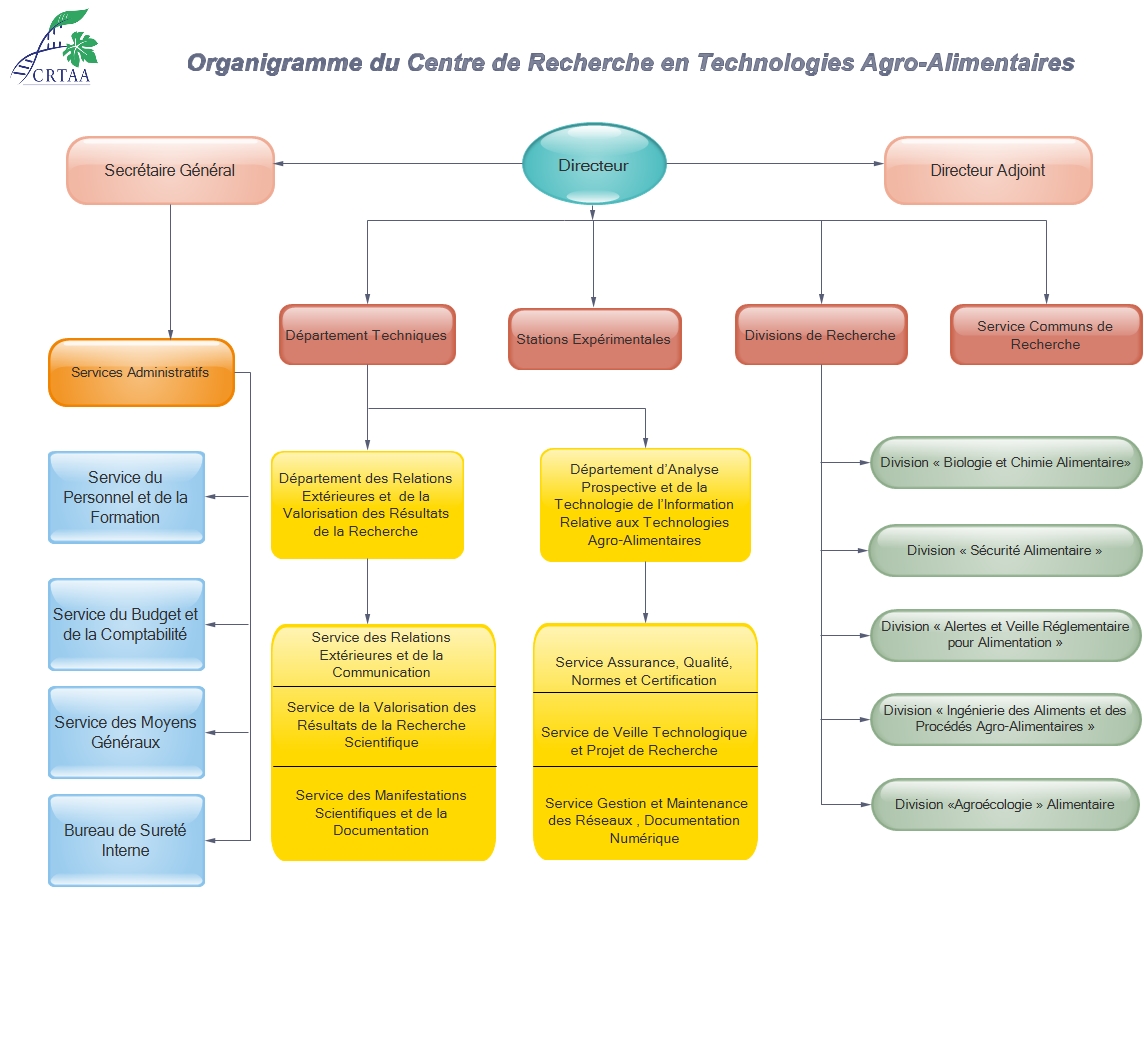The CRTAA
Under the supervision of the Minister responsible for scientific research, the RCAFT is in charge of carrying out scientific research and technological development programs in the field of agri-food technologies, particularly promoting research in the fields of technologies applied to the agri-food sector .
It is also charged to contribute to the development of processes aimed at controlling and diversifying the properties of use and the functionality of products for processing industries.
This center contributes as well to the development of alternative environment-friendly techniques for the processing and preservation of agri-food products, the development of techniques for the management of resources and the reduction of the quantity of waste and losses resulting from deterioration of products occurring during production, processing and distribution.
Taking part in the development and harmonization of legislation relating to bioethics, biosafety and referential standards in collaboration with the concerned bodies are also among the missions of the Research Center for Agri-Food Technologies.
ID card
Status :
Public Scientific and Technological EstablishmentCreation date :
April 29th, 2019Director :
Pr. MADANI KhodirHead office :
Targa Ouzemmour Street, University Campus, 06000 Bejaia, Algeria.
Missions
The main mission entrusted to the RCAFT is advancing knowledge and being useful to society, a national mission that the center intends to fulfill in compliance with the rules of ethics and by committing to professional equality.
A mission that is divided into seven areas:
- 1. Advancing research in the fields of technologies applied to the agri-food sector;
- 2. Developing processes aimed at controlling and diversifying the properties of use and the functionality of products for processing industries;
- 3. Contributing to the development of profitable agri-food processes and new agri-food products and ingredients with new health and functional characteristics;
- 4. Promoting food innovation (food and health, food processing and food characteristics) by ensuring food safety;
- 5. Contributing to the development of alternative processing and preservation techniques for agri-food products that are better for the environment;
- 6. Contributing to the development of techniques for managing resources, reducing the amount of waste and losses arising from product spoilage occurring during production, processing and distribution;
- 7. Participating to the development and harmonization of legislation relating to bioethics, biosafety and reference standards.
Five Scientific Directions (SD)
- SD 1. Respond to food security issues and manage associated risks (environment, health).
- SD 2. Support agri-ecological changes and the food transition, by combining economic and social challenges.
- SD 3. Strive for a bio-economy based on resources with a rational and recycling use.
- SD 4. Promote a global approach to the food-health concept.
- SD 5. Embed Data science and digital technologies in the service of decision-makers and general public.
Five General Policy Orientations (GPO)
- GPO1. Emplace research, innovation and expertise in our relations with society and business.
- GPO2. Be a committed player with university laboratories and a leader in national and international partnerships.
- GPO 3. Make “Food, Environmental and Health Responsibility” a collective priority.
- GPO 4. The RCAFT engages in participatory science approaches. It will participate in the dynamism of the research and higher education ecosystem, by contributing to Tamayouz policies (TIAA) and research alliances.
- GPO 5. Establishment of a network that will allow collaboration with the best teams in Algeria and in the world (regional, African, Mediterranean ...) and the indexing of a scientific journal on food.
Center Organization Chart


